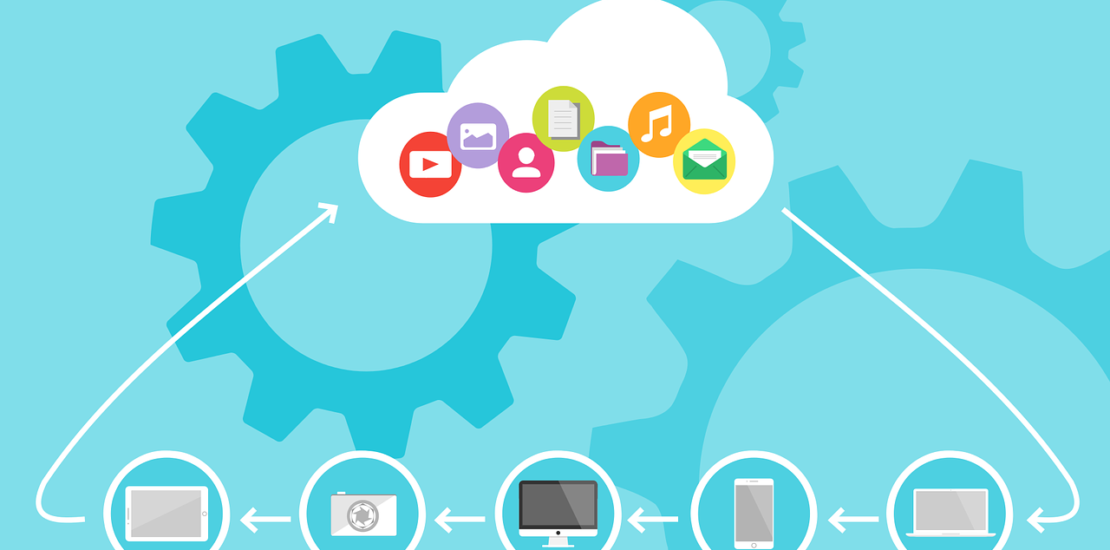- June 14, 2019
- Posted by: admin
- Category: Technology

When most people have a few minutes to kill they turn to Candy Crush, Clash of Clans, or any number of other mobile games for distraction. My favorite time wasting website is Archive.org’s Wayback Machine. Type any web address and you can browse a snapshot of the site as it looked on say, April 15th 1999. You can relive the launch of the first iPod in October of 2001. (OMG! It holds 1,000 songs!!!)
But I digress. My point is that technology changes fast. For example, if you had typed the word cloud into your favorite search engine in 1999 (Alta Vista anyone? Anyone?), you would get a list of meteorological sites. Type the word “cloud” into your search engine today and a dizzying amount of information appears on the wonders of putting your technology in “The Cloud.” But what is the cloud and what does it mean for your small business?
What Can The Cloud Do For You?
At its core, the cloud moves data, processing, and software from your local network to a network accessible over the internet. If you want to straight-line your technology costs and avoid the 5-7 year cycle of upgrading your hardware, then the cloud is for you. The cloud can also lower the system requirements and therefore the costs of your desktops and laptops as the bulk of the processing is done on your cloud provider’s network. Software in the cloud also makes your information accessible from anywhere you can open a browser. Another area of advantage for the cloud is implementation and expansion. New users can be added (and sometimes subtracted) at will, often within 24 hours. Seasonal businesses (think Halloween stores) and other pop-up retailers can quickly add seats for their busy times and with the right cloud partner subtract them during their slow times. Under the right conditions, the cloud is an effective solution to many of the needs of small business. So what’s the downside?
The Dark Side Of The Cloud
When you’re on the cloud, your data connection becomes paramount. Your 4Mbps T1 data line was adequate when your data was ten feet away in a server closet and getting 100Mbps through your local network. Now that your entire network is in The Cloud, the amount of bandwidth available to you can be a serious bottleneck.
Speaking of your data line: When your network was on premises and your DSL went down, the most you had to deal with was the loss of email traffic. Now that it’s in the cloud? You may be unable to take an order, look at customer history, dispatch your fleet, or pay your bills. Now what about security? Microsoft, QuickBooks, and other providers of cloud-based software have the resources to implement layer upon layer of firewalls, encryption, and other security measures unattainable to small businesses that don’t have access to IT support. But is your data more secure? Not necessarily.
Who Benefits?
When a new concept gets a marketing blitz like the cloud has recently, I usually ask myself, “Qui bono? Who benefits?” The answer? Software companies. For years the software industry struggled to motivate clients to continue spending after software was purchased. They released new versions in quick succession with spurious benefits. Due to familiarity and costs, many business customers retained their old software.
Enter the age of lower priced bandwidth. In 2002, I paid $700/month for a 4Mbps T1. Today providers like Comcast are selling 50Mbps for $79/month. This deflation in bandwidth pricing made software in the cloud less expensive and gave the software industry its opportunity to capitalize. Cloud software sales reached 28 billion dollars in worldwide revenue in 2012, a 28.4% increase over the previous year. It is expected to grow to 76 Billion dollars by 2017. The software industry found a way to force customer adoption of newer versions and at the same time grabbed a piece of the hardware market formerly outside of their revenue stream.
Long Term Costs And Other Tradeoffs
So how does the cloud compare to on-premises networking for small business? An on-premises server running Exchange, File sharing, and other core software is a capital investment with a service life of 5-7 years. The cloud usually has no upfront investment (which is awesome) but a monthly fee that continues forever (which is not awesome.) In most situations, your return on investment for an on-premises network is 3 years. After 3 years you will have paid just as much for your server as you would in the cloud. Every year you get from your hardware beyond 3 years is a cost savings.
It’s also important when considering a cloud option to explore what happens to your data if you choose to change providers. The cloud provider must present you with your data, but without the software to read it is it in a useable format for both historic review and translation to your new provider.
The Bottom Line: The Cloud vs. Local Servers


